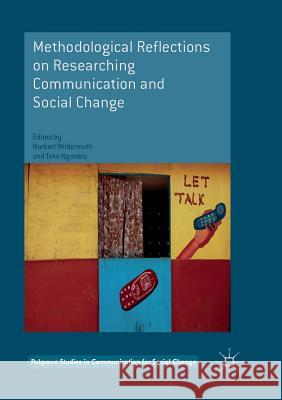Methodological Reflections on Researching Communication and Social Change » książka
topmenu
Methodological Reflections on Researching Communication and Social Change
ISBN-13: 9783319821092 / Angielski / Miękka / 2018 / 219 str.
Kategorie:
Kategorie BISAC:
Wydawca:
Palgrave MacMillan
Seria wydawnicza:
Język:
Angielski
ISBN-13:
9783319821092
Rok wydania:
2018
Wydanie:
Softcover Repri
Ilość stron:
219
Waga:
0.28 kg
Wymiary:
21.01 x 14.81 x 1.27
Oprawa:
Miękka
Wolumenów:
01
Dodatkowe informacje:
Wydanie ilustrowane











